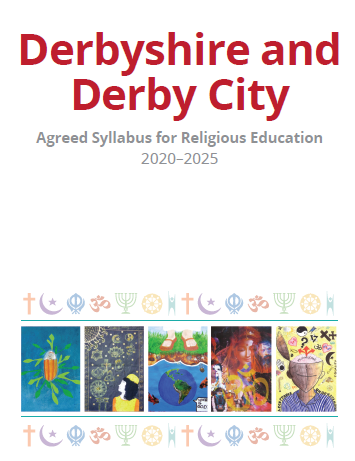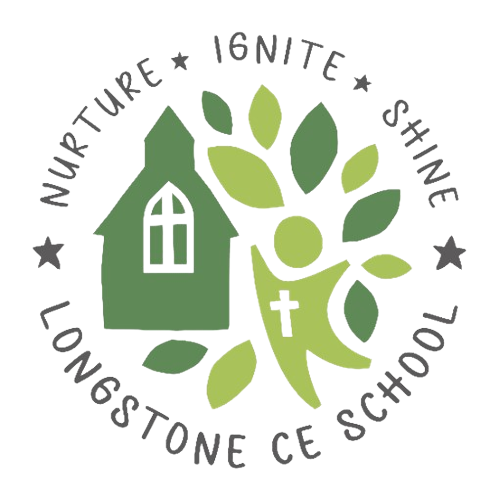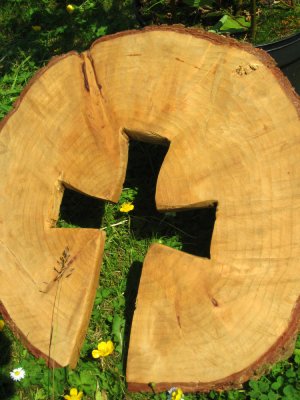RE
At Longstone CE (VA) Primary School, we believe that it is important for all of our pupils to learn about religion, so that they can understand and shine in the world around them. Our aim, as a Church of England primary school, is to nurture the children to develop a knowledge and understanding of Christianity and the other principal religions represented in Great Britain; to appreciate the way that religious beliefs shape life and behaviour; develop the ability to make reasoned and informed judgements about religious and moral issues and enhance the children’s spiritual, moral, social and cultural development.
Our RE teaching, combined with our Collective Worship syllabus, reflects the Christian values that our school upholds and is taught via a series of big questions from the Derbyshire Agreed Syllabus for Religious Education, aligned with the Church of England RE statement of entitlement, which ignite a curisioty within the child and encourage them to explore. We encourage our children to ask and investigate questions about the world and to reflect on their own beliefs, values and experiences. We include and promote British values, ensuring that the children are aware of their rights and responsibilities as UK citizens.
We use the Derbyshire Agreed Syllabus for Religious Education. The R.E. syllabus sets a key question for each unit of learning, these are categorised into learning about Believing (religious beliefs, teaching and sources; questions about meaning, purpose and truth), Expressing (Religious and spiritual forms of expression; questions about identity and diversity) and Living (religious practices and ways of living; questions about values and commitments).
As the children progress through school they discover these aspects of learning, then explore them before connecting them together towards the end of their primary education. Once the children move on to secondary education they build on this by interpreting and applying their learning. The predominant mono cultural and mono religious nature of our immediate community increases the importance of learning in R.E.
Our RE curriculum is delivered via a cycle which builds upon children's knowledge in each area of Religious Education over time to ensure that the children gain a depth of knowledge by Year 6.
Our curriculum is delivered through a variety of learning experiences including handling artefacts, exploring scared texts, using imaginative play or drama to express feelings and ideas, responding to images, games, stories, art, music and dance, meeting visitors from local religious communities, making visits to religious places of worship where possible, and where not, making use of videos and the Internet, taking part in whole school events- (multi-faith days, Harvest Festival, school performances), participating in moments of quiet reflection, participating in Open the Book assemblies, using ICT to further explore religion and belief globally, comparing religions and world views through discussion, debating and communicating religious belief, world views and philosophical ideas and answering and asking ultimate questions posed by these.

RELIGIOUS EDUCATION CURRICULUM IMPACT
- Extends their knowledge and understanding of religions and beliefs
- Develops a religious vocabulary and interpret religious symbolism in a variety of forms
- Reflects on questions of meaning, offering their own thoughtful and informed insights into religious and secular world-views
- Explores ultimate questions of beliefs and values in relation to a range of contemporary issues in an ever-changing society


